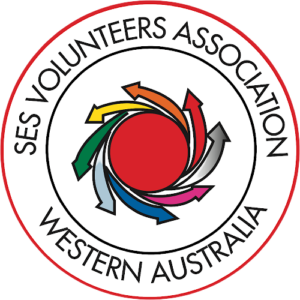SES TRAINING INFORMATION SESSION – 28 November 2013
During the DFES conference in September, it was made obvious to the SES Volunteers Association (SESVA) that Training was a big issue for the SES Volunteers, followed by vehicles, leadership and communication. The SESVA then commenced data gathering and found some blockers within DFES who will not support the traditional way in which the SES Volunteers had trained and networked for decades.
As a result of this the SESVA met with DFES in October to discuss the best way to address the issues and assist the Volunteers in the training area. The development of an SES Pathways commenced as a result of these meetings. The DFES Academy then developed a training information session and invited SES Training Managers and others from around the state to attend this special session on 28 November.
Over 40 Volunteers and 12 staff, including 7 SESVA committee members, attended this session. Wade Isard started the evening by giving an overview of the Academy and included the main players who are involved in any of the SES training preparation.
Following are some dot points from the Information Session;
- DFES advise that all curriculum writing will include consultation with subject matter experts
- There is a backlog in the curriculum writing
- E-Learning is a coming method for training
- TRKs will be digital in future – after questions on this, including input from the SW region, DFES stated that all regional offices will be advised to print out the TRK for the Volunteers who require a hard copy
- Peter McCarthy described the draft SES Volunteer Pathways that are a result of meetings with the SES Volunteers Association. What is being considered, is having a Departmental Standard for courses as the base. Extra recorded activity (nominal hours and a log book) will be necessary for those Volunteers who want to achieve a national competency. Currently there is consultation with the staff on this and then it will go to key SES Volunteers for further input. This is the current concept and it is hoped that it will be the basis of the future training guide for the SES Volunteers
- Nominal hours were discussed at great length and included information that could make it very difficult for many Volunteers to achieve a number of these and in particular being a trainer/assessor in many skills
- Chrissy Caughey then went through some of the possible changes to the SES Qualifications including how the PUA12 was recently changed, some of the gap management and some methods that could be used to address nominal hours
- It was explained that it is hoped the TAE will be conducted by DFES with the Cert IV probably being outsourced.
- There was discussion by Volunteers about the drop in training caused by confusion in a number of areas including driver training. DFES promised to provide a chart for the Volunteers on Driver Training and the different components, what they mean and what you can and cannot do
- A number of decisions made at the District Office level about training are being blocked or changed at Chief Superintendent level. The SESVA will take this up at the appropriate forum as it has the potential to affect service delivery in Operations Command
The evening was an ideal venue for SES Volunteers to provide input and feedback on training matters – and they certainly did with DFES now having a good understanding of their issues and requirements for training.
Unfortunately NO SES Volunteers were sent by the DFES country regions to this very important and informative information session. The SESVA offered DFES the opportunity to print the SES Pathways and any other training matters in the SESVA Journal due out late March 2014. This has a large following amongst SES Volunteers and is one of the best forms of communication.
Gordon Hall
SESVA President

